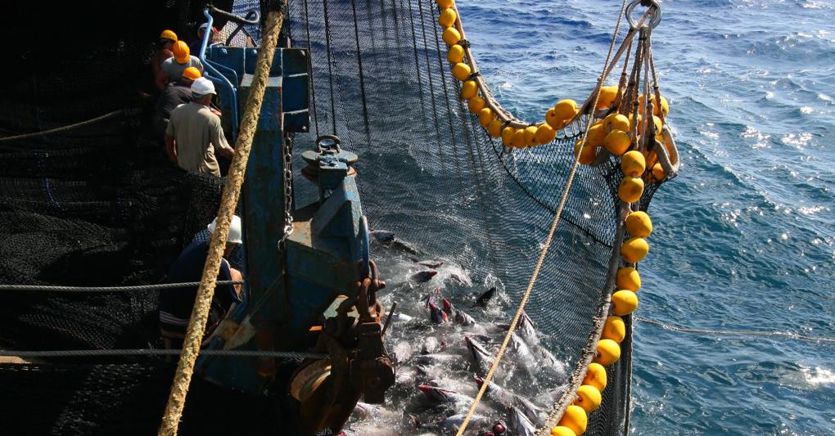Investing in innovative technologies and processes, limiting ecological damage and combating illegal fishing. These are the three axes on which the Italian strategy in the fishing sector moves, in line with what is dictated by European rules but also with what is called the “Blue transition”. With some issues on the table that need to be urgently addressed: the protection of ecosystems and the regulation of fishing stops, the sustainable use of resources, the prospects of the fish and aquaculture supply chains, attention to consumers. In short, a complex of issues that affect the economy of the sea on which it appears urgent to intervene.
Items on the agenda of “Blue Day. States General of Fisheries and Aquaculture”, two days dedicated to fishing that take place at the SAL of Catania with a series of events and debates promoted by the Ministry of Agricultural, Food and Forestry Policies . «In the last twenty years the fishing sector has undergone profound changes – reiterates Riccardo Rigillo, Director General of Mipaaf sea fishing and aquaculture -. The defense of the specificity of the Mediterranean, of its peculiarity in terms of environmental and cultural biodiversity, has produced stringent effects and regulations whose consequences we are paying today. There is certainly a strong call for change within the EU. What appears most evident is the approach towards a blue economy that combines ecosystem protection, sector progress, employment and sustainability. The realization of this new course is the strategy of the Feampa (European Fund for maritime affairs, fisheries and aquaculture), a fund worth about one billion euros that promotes funding at European level to support and innovate the entire supply chain ”.
Dissent on common policy
The States-General arrive at a difficult time: the Covid-19 pandemic has hit fishing and aquaculture activities in the Mediterranean hard, causing sharp decreases in activities, production and drastic drops in product prices. The common fisheries policy remains under accusation: «They are sinking us. These are the effects of the common fisheries policy that is implementing in the Mediterranean a strategy aimed at a drastic reduction of the fishing effort which, from 2019 to 2024, will involve on average for the various segments of the fleets operating in these trades the subtraction of 40% of the annual days – say the leaders of Alleanza Cooperative Pesca who strongly draw the attention of the institutions to the macroscopic problem inherent in the management model of the sector, starting with the trawling and steering wheel sectors which together supply most of the marketed product in the country’s fish markets. «The impact of these reductions will lead to the deafult of many companies that will fall below the minimum profitability threshold. The protests of the sector both in Italy and in other Mediterranean Member States were of no avail. The Commission is moving forward inexorably, straight on its path, without changing its position by one millimeter – say the leaders of Alleanza Cooperative Pesca -. We believe that it is necessary to set up a crisis table that allows us to face the problems in a concrete way, evaluating the sectoral diversities ».
Reforms and programs
«Our horizon must be to make the supply chains grow, guaranteeing growth and employment, better working conditions, implementing innovation and competitiveness and creating lasting economic stability. The beacon of our actions cannot ignore the safeguarding of our ecosystems, biodiversity and the sustainable use of our resources »says Francesco Battistoni, undersecretary of Mipaaf. Meanwhile, Mipaaf has earmarked 20 million for the fish and aquaculture sector, of which 15 million for companies in the maritime sector, 3.5 million for aquaculture and 1.5 million for the sector operating in inland waters through the Regions and autonomous provinces. within their powers. Of course it is an important signal but there are other issues that the sector asks to address. The deputy Filippo Gallinella of M5S, president of the Agriculture commission reminds her: “The Chamber – he says – has fired the bill signed by his colleague L’Abbate (M5S) which contains, internally, numerous interventions on the sector while the The Ministry continues the debate in the Community on the European standards that are often close to the sector. I will then continue to urge the Minister of Labor, Andrea Orlando, to finally reach a solution for a social safety net worthy of the name for Italian fishermen. Furthermore, we will have to review the organization of fishing days and biological shutdowns but, above all, work for generational renewal and greater sustainability. The priority, however, remains the income of the fishermen who carry out a hard and difficult job, always guaranteeing us fresh and local fish ».
